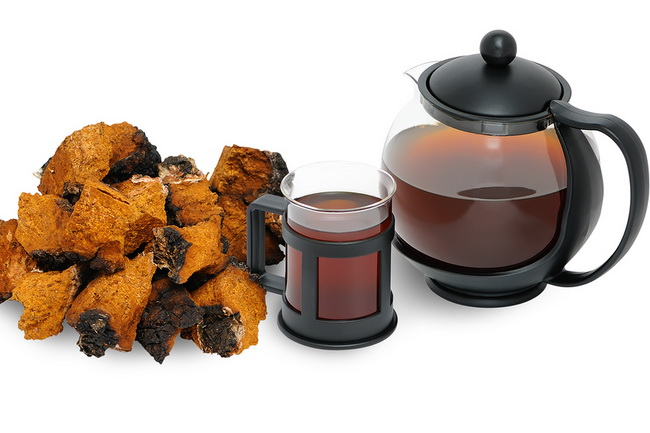- Make It Yourself Lavender Heart-Shaped Bath Bombs!
- 20 Things You Never Knew About “Down There”
- 12 Best Foods For Those Suffering From Arthritis Pain
- 12 Personal Hygiene Mistakes Almost Everyone Makes (Mom Never Told You About #4!)
- 15 Medicinal Plants And Herbs From The Cherokee People
- 12 Mind-Blowing Benefits Of Drinking Coconut Water During Pregnancy
- 12 Outstanding Winter Foods That Won’t Fatten You Up Like A Christmas Turkey
Chaga Tea: It’s Good for What Ails You

Photo credit: bigstock.com
You might have heard a lot of people talking about chaga tea and the great benefits it has brought to their lives. Perhaps you have heard of chaga tea before, or you might not have. Chaga tea seems to be a subject either frequently talked about or rarely talked about, depending on your friends and social circles. Chaga mushrooms and the tea that is made from these powerfully medicinal mushrooms are very popular in Europe and Russia, but it is little known in much of the West.
Whether you have heard about it or not, there are plenty of things you should know about this fascinating and healthy type of mushroom tea and why you should be drinking more of it.
To begin with, chaga mushrooms are a very different type of mushrooms. They aren’t your normal umbrella type mushrooms. Chaga looks an awful lot like burnt charcoal! They have a woody type of feel rather than soft like most mushrooms. Some people do mistake them for charcoal and use them to start fires! Chaga is called a mushroom, but it’s actually a parasitic fungus that grows on the bark of birch and beech trees. Sometimes it’s called “tree cancer” because, over time, it does kill the tree, but this strange growth has fascinated people for ages.
The name actually comes from the Komi-Permyak language of Russia, where it is sometimes referred to as ‘tinder fungus.’
Chaga mushrooms grow in the colder climates of northern and eastern Europe, Russia, Canada, and the United States. These mushrooms have been used for centuries by indigenous peoples for their health benefits.
Although there have been no known clinical trials to test the effectiveness of these mushrooms on cancerous tumors, but many of the compounds found in these mushrooms contain compounds that are known to fight and destroy cancer cells. One of the compounds in this mushroom that is thought to have the most significant anti-cancer capabilities is called lanostanoids. This compound and how it works is not fully understood but it appears to prevent cancer cells from replicating itself and by causing premature cancer cell death.
Continue to Page 2
































